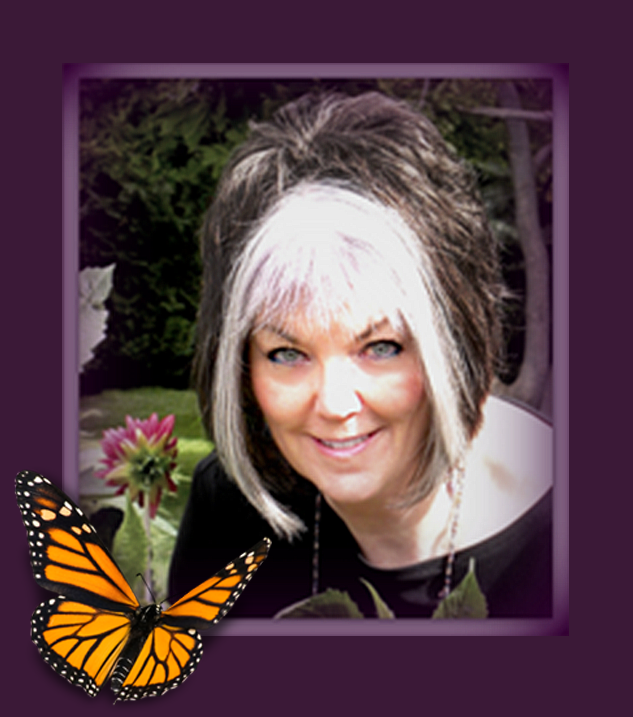

What is Coaching?
It is a form of conversation with the qualities of respect, openness, compassion, empathy, and a commitment to speaking the truth. Coaching is the practice of supporting an individual through the process of achieving a specific personal or professional result. A coach assists the individual in identifying specific goals and in reaching those goals. Coaching provides tools, perspective, and structure through the process of accountability. It is a supportive and encouraging relationship committed to your success. It provides a structure with flexibility so that you can solve problems and achieve more at a pace that meets your individual needs. Coaching is a collaborative partnership to work toward discovering a permanent solution and move forward. It is holistic in its approach supporting the development of the whole person emotionally, physically, intellectually, and spiritually. Coaching is action-oriented and encourages self-empowerment. Coaching is about discovering a person’s goals and passions, being aware of their strengths and weakness, and assisting a person with making positive choices. Coaching is a form of conversation that supports that every situation has the potential for change and that people have the power to make choices in their lives. A coach is someone who wants to see a person succeed and hold them accountable and help them move forward to achieve their goals.
Coaching is about discovering a person’s goals and passions, being aware of their strengths and weakness, and assisting a person with making positive choices. Coaching is a form of conversation that supports that every situation has the potential for change and that people have the power to make choices in their lives. A coach is someone who wants to see a person succeed and hold them accountable and help them move forward to achieve their goals.
Coaching is generally categorized into two areas: executive and life coaching. Executive coaching is sought in areas such as leadership, productivity, career, change management, and peek performance. Life coaching includes health and wellness, balance life events, relationships, and purpose/fulfillment. You will see many different titles out there, which can be confusing however, working with a coach that is experienced or specializes in the area you want to be coached is important when you are seeking support and direction for your specific goals.
What is the difference between Counseling and Coaching?
Counseling and coaching often overlap but there is a distinction between the two. Therapists are trained to diagnose emotional problems and work with clients to heal emotional wounds. Coaches do not diagnose but emotional healing can come from a client making a courageous choice that brings about a sense of healing. Coaches provide support and strategy to assist clients in moving forward being movement oriented and action based. Coaching is not consulting where often advice is given. Coaching focuses on assisting a person in discovering a solution that works for the person.
Coaches may have a wide range of experiences, specialties, and credentials where as therapists have state, federal and field related licenses. Coaching at present is not a licensed field. Nevertheless, a coach is likely to have training and abide by specific guidelines or code of ethics. You will find that some therapists like myself, utilize coaching as part of their practices as they already posses the skills to motivate and empower. A coach focuses on encouraging you to reach your specific goals. A coach generally specializes in areas that they have training and experience.
When I first considered including coaching in my practice, I explored different approaches and found that Co-Active Coaching mirrored my own thoughts and values. Coaching is about the human experience empowering people to find their own answers. It is building on the premise that people are naturally creative, resourceful and whole —completely capable of finding their own answers. This approach speaks of coaching as a transformative experience empowering for client and coach.
What is Co-Active Coaching?
The Co-Active Coaching Model was founded by Laura Whitworth and Henry Kimsey-House and Karen Kimsey-House that offers a holistic integrative approach. They assert that the primary building block for co-active coaching is that the client has the answers, nothing is wrong or broken, and the coach invites discovery.
In their book, Co-Active Coaching, they assert that coaching is about “discovery, awareness, and choice.” They go on to say that coaching is a way to empower people to “find their own answers.” They view coaching as a relationship based on a conversation that has qualities of “respect, openness, compassion, empathy and a rigorous commitment to speaking the truth.”
The Co-Active coaching model holds that a person is “naturally creative, resourceful and whole” completely capable of finding their own answers to whatever challenges they face. The job of the coach is to ask powerful questions, listen, and empower the client to elicit the skills and creativity a client already possesses rather than instruct or advise. The core principles of this model, which serve to create a fulfilling life, are fulfillment, balance, and process. It is what creates a passionate life, widens perspective allowing more choices and encouraging clients while they navigate through difficult places.
Benefits of Coaching There are many benefits to professional coaching. You can expect to experience fresh perspectives on personal challenges and opportunities, enhance thinking and decision making skills, enhance interpersonal effectiveness and increased confidence. As a result one can expect to see appreciable results in productively, personal satisfaction and achievement of personal goals. Benefits that are more personal can be seen in an increase in self-esteem and self-confidence and managing work and life balance.
There are many benefits to professional coaching. You can expect to experience fresh perspectives on personal challenges and opportunities, enhance thinking and decision making skills, enhance interpersonal effectiveness and increased confidence. As a result one can expect to see appreciable results in productively, personal satisfaction and achievement of personal goals. Benefits that are more personal can be seen in an increase in self-esteem and self-confidence and managing work and life balance.
What does it mean to be coachable?
Are you . . . willing to see new perspectives open to change
open to change accountable to yourself and your coaching commitment
accountable to yourself and your coaching commitment ready to let go of limiting beliefs
ready to let go of limiting beliefs able to think outside the box
able to think outside the box willing to take risks
willing to take risks
Then ask yourself, am I ready to . . . create balance in my life create plans and take action to achieve my goals
create plans and take action to achieve my goals make real and positive changes
make real and positive changes achieve a sense of fulfillment
achieve a sense of fulfillment find and live my life purpose
find and live my life purpose
When to hire a coach
If you answered yes to any of the questions above then it is time to consider hiring a coach. Also, consider hiring a coach if you have a good idea of what you want to be doing or achieving but you are procrastinating or bogged down with obstacles instead of making steady progress. An important thing to remember is that success depends on the client’s willingness to change. This requires motivation and drive so that the coach can use this to steer you towards your goals.
People hire coaches for a variety of reason here are just a few: Increased self-awareness, goal setting, more balanced life, lower stress levels, enhanced self-discovery, increased confidence, improved quality of life, enhanced communication skills, ignite creativity, increased project completion, and better relationships.
How does coaching work?
Coaching is a professional, interactive relationship designed to help you produce lasting results in your personal and professional life. The focus of the coaching relationship is on you the client. It is about where you are and where you want to go and what you are willing to do to get there.
There is no single universal or official format for coaching. Factors to consider include a time frame, coaching medium, length and frequency of sessions. Some coaching relationships are open-ended and ongoing. A coach can become part of the client’s support system as the client is making transitions. Other coaching relationships are a fixed length.
The coaching medium can be designed around convenience of coaching by phone and the ability to connect virtually anywhere. Some clients and coaches prefer meeting face-to-face. It is of course possible to combine phone and in-person sessions. Other media including e-mail, texting and the like can be utilized as well.
The length and frequency of sessions is determined by what works best for the coach and the client. The most common form of coaching is thirty-minute phone sessions four times a month. If however, it is determined that longer sessions benefit the process then this is acceptable as well.
How I work with clients It starts with a conversation. An effective coaching conversation gets to the heart-of-the-matter. It is a focused, concentrated conversation designed to support you in clarifying choices and making changes. To that end, I work with you to implement the changes you desire.
It starts with a conversation. An effective coaching conversation gets to the heart-of-the-matter. It is a focused, concentrated conversation designed to support you in clarifying choices and making changes. To that end, I work with you to implement the changes you desire.
The environment of coaching begins with mutually agreed upon ground rules, expectations, and agreements. It requires a commitment to do your best. It then broadens into being a safe place for you to take risks and approach the changes desired with motivation, curiosity, creativity, and resourcefulness. This is built on trust for your capabilities and integrity. The coaching environment further expands into openness and spaciousness allowing for experiment, inspiration, and strategizing without limitation. It also allows for exploring obstacles and limiting perceptions.
The coaching environment becomes a designed alliance consciously developing and redesigning the coaching relationship to support the progression of goals. It is a place where the truth can be spoken without judgment, be able to discuss your progress or no progress, and accountability.
I am here to support you so I will rely on you to choose the focus of the conversation while I listen, provide observations, ask powerful questions to assist you in achieving your desired changes, and provide feedback. Coaching provides you with focus, structure, and support.
Getting started
I offer a 15-minute sample session that will give you the opportunity to experience coaching before entering a long term coaching relationship. Once deciding to move forward we will develop a working agreement, which will define how we will work together. We will decide the coaching format, which includes three things. The time frame is usually a three-month commitment to start with which can go to open-ended and on going if desired. The coaching medium can be either face-to-face, phone or a combination of both. The length and frequency of sessions can be designed several ways. I usually like to start with a face-to-face 60 minute discovery session to discuss what you want out of your coaching experience, how we will work together, and identify where you are now and where you want to go.
Once we have designed the coaching environment we will discuss your goals and I will assist you in designing the project, accessing support, providing structure and accountability to arrive at your desired goal. I will assist you in finding solutions and make the most of your opportunities. I will assist you in exploring alternative perspectives, offer suggestions, and assist you in planning your next steps.
Prior to coaching sessions, you will provide me with a list of issues you want to discuss. Since much of what we will do involves action, I usually ask that you come up with 1-3 goals, actions, or breakthroughs between sessions. You will be amazed at how your perspectives shift and possibilities broaden as you move from intention to action.
Go to Coaching Fees for further information about sessions design, options, agreement, and fees.
Coaching Philosophy
Each of us holds the wisdom and power within us to make our lives what we want it to be. The coaching relationship is an alliance and partnership that supports a process of inquiry that empowers clients to reconnect with their inner wisdom to find their answers making powerful choices out of which lasting change occurs.
In accordance with the Co-Active coaching model: A person is “naturally creative, resourceful and whole” completely capable of finding their own answers to whatever challenges they face. We are whole beings with choices to make that affect every aspect of our lives. Each aspect affects every other part of our experience. Relationships affect how we relate to the world.
Professional Conduct/Ethics As a professional, I honor my ethical obligations to my coaching clients and colleagues. I treat people with dignity as independent and equal human beings, and model these standards with those whom I coach.
As a professional, I honor my ethical obligations to my coaching clients and colleagues. I treat people with dignity as independent and equal human beings, and model these standards with those whom I coach.
I provide coaching to clients only in areas that I am qualified. I offer coaching to individuals in the following areas: creativity, life purpose, mental wellness, personal management, relationships, sobriety and recovery, life balance, and spiritual path. If it becomes apparent that the client’s challenges are beyond the coaching experience, I will recommend that the client seek services from a qualified professional to assist them with that concern. I reserve the right to terminate the coaching relationship until the client has done so or if it impedes the coaching process.
I respect the confidentially of my client’s and the coaching relationship. I hold confidential the names of my clients, information about their personal and or professional life except as otherwise authorized by my client, or as required by law.
I continue to develop as a professional by advancing my personal growth and exploration by participating in coaching related activities, workshops and seminars. In pursuit of professional development as a coach I am completing course work to become a Board Certified Coach (BCC) through the Center for Credentialing & Education (CCE) outlined in the BCC Code of Ethics.
You can call me @ 509-850-5991 to set up an appointment, using the appointment request or send me an This email address is being protected from spambots. You need JavaScript enabled to view it..





